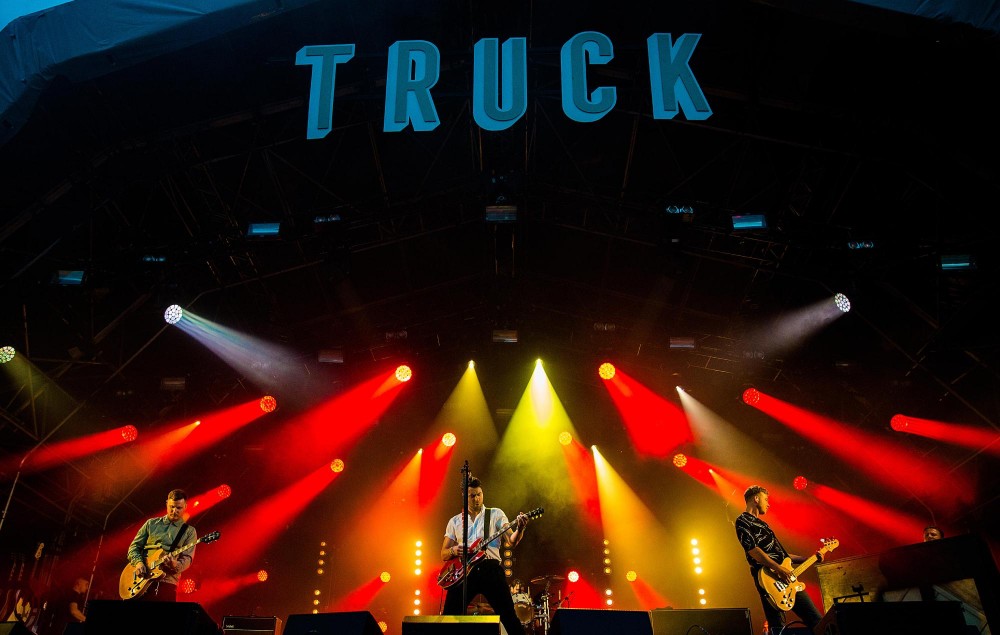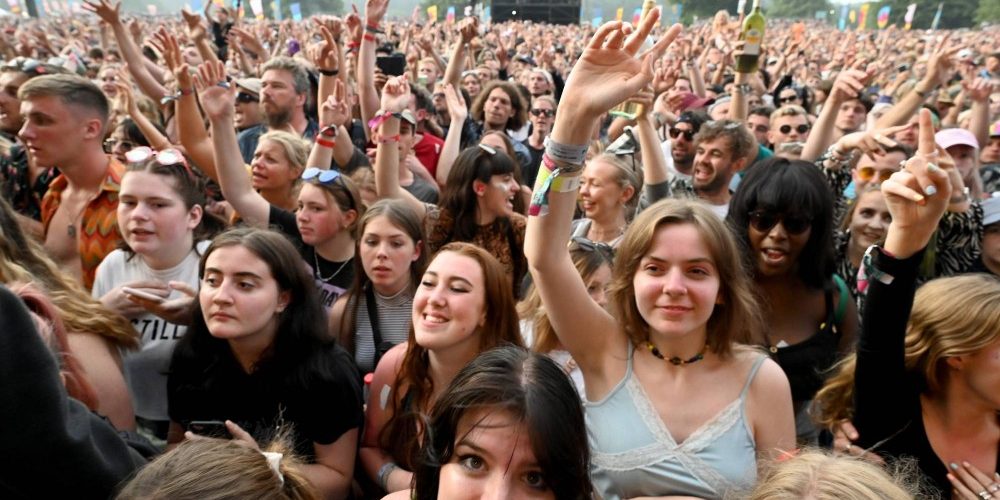£750million government-backed COVID insurance scheme announced for festivals and live events
After over of year of pleas from the music industry, a government-backed COVID insurance scheme for live events and festivals has finally been announced – to the tune of £750million.
Back in May, UK festivals issued a “red alert” warning amid claims that they had “hit a brick wall” in government talks for an insurance plan – before it emerged that more than half of the UK’s festivals had been cancelled in 2021 due to uncertainty around operating with coronavirus restrictions. Insurance has been long overdue, as many events would face bankruptcy if forced to cancel again at the last minute having already suffered huge financial blows last summer. Commercial insurers have not been able to provide such a service until now.
Now, the UK government has partnered with Lloyd’s to deliver the Live Events Reinsurance Scheme as part of the Plan for Jobs, with the government acting as a ‘reinsurer’ – “stepping in with a guarantee to make sure insurers can offer the products events companies need”.

A government spokesperson said that the scheme would be “delivered through insurers with events organisers able to purchase cover for government-enforced cancellation due to the event being legally unable to happen due to Government COVID restrictions, alongside their standard insurance”.
The scheme will be available from September 2021 and run until the end of September 2022.
Speaking to NME earlier today, chancellor Rishi Sunak defended the government not launching the scheme until now when many festivals have fallen by the wayside and a similar scheme was offered to film and TV production over a year ago.
“What we’ve always said for live events is, ‘if insurance is the last barrier to them reopening, then we would look to try and work with the industry to create a product’,” he said. “Now that we’ve got stage four, it is indeed the last barrier – so I’m delighted that we’ve been able to do it.”
“What gives me confidence about the future, and hopefully gives others confidence as well, is first and foremost the vaccine roll-out. Creating that wall of defence through the vaccine should give us all a bit of optimism. We’ve also been running research events and pilots and getting the findings from that. Our collective desire is finding a way to actually maintain all of these things without having to impose what are difficult economic restrictions.”
After Prime Minister Boris Johnson said that the roadmap out of lockdown would be “cautious but irreversible”, Sunak said that the scheme would help protect live music events if restrictions should have to return.
“What is insurance? You don’t want things to happen, but that’s why you have an insurance product – to protect you against things like that,” he told NME. “That’s what this is. It’s an insurance product so that if you’re planning one of these events then you can get access to insurance that covers your cost in the event of something like that happening. What the industry was saying to us was that they needed the extra government support to try and create that product and get it back into the market.”
Sunak added that “hopefully now events can plan with confidence, regardless of circumstance”, and that the plan would also help secure hundreds of thousands of jobs in the events supply chain.

Culture Secretary Oliver Dowden said that this was part of the government’s plan to “rescue, reopen and recover”.
“We’ve been here for live events throughout the pandemic with billions of pounds of rescue funding,” he said. “Today is an important next step as we develop live events insurance to give them the confidence they need to plan for a brighter future.
“Our events industries are not just vital for the economy and jobs; they put Britain on the map and, thanks to this extra support, will get people back to the experiences that make life worth living.”
While the news has ultimately been welcomed by the events sector, many have voiced concerns about gaps in the plan. LIVE CEO Greg Parmley said that he “looked forward to working together over the coming weeks to determine the final shape of the policy and to ensure it can support the full return of the sector in the face of the most likely impacts of COVID,” while CEO of Association of Independent Festivals Paul Reed highlighted that there were still many concerns to be addressed.
“AIF has campaigned for a Government-backed insurance scheme for festivals for over a year, from raising it as a headline issue with the DCMS Select Committee to working with DCMS colleagues and presenting detailed evidence and data to support the case,” said Reed. “We are pleased that Government has listened, and we welcome this intervention to address the insurance market failure. It is positive that festival organisers will now have an option for COVID cancellation.
“The scheme doesn’t, however, cover a festival needing to reduce capacity or cancel due to social distancing restrictions being reintroduced, so it remains imperative that Government continues to work with the sector in areas such as COVID certification to try and avoid such an eventuality and ensure that organisers can plan with increased confidence for 2022.”
Phil Bowdery, Chairman of the Concert Promoters Association added: “This is welcome news from DCMS. The sector has been calling out for Government to act for over a year and we now have something tangible. While the new scheme won’t cover all our risk, this intervention will help protect the industry that we all know and love.”

Night Time Industries Association CEO Michael Kill was also optimistic for the future.
“I am extremely pleased that the Government has decided to introduce an insurance scheme for the events and festival sector, it stands testament to a Government that is starting to acknowledge the varying issues within the sector and through engagement, take the appropriate action to protect businesses and jobs,” he said.
“Over 700,000 people work within this sector, it will give some comfort and certainty to supply chain and freelancers that heavily rely on this industry for their main source of income, and we would hope that with this news many will feel confident in returning to work within the sector.”
“It is devastating that the timings of this scheme could not have been earlier, as we have already lost many amazing festivals and events to the uncertainty that this pandemic represents, but I feel that this scheme will allow a beleaguered sector to start to rebuild and plan with confidence for the future.”
This is a developing story. Check back at NME soon for more comments from Chancellor Rishi Sunak on funding for the music sector.
Meanwhile, the government have been under fire this week and accused of “spin” and “meaningless posturing” over their claims of victory in revealing that UK artists will be able to tour 19 EU members states without a visa post-Brexit.
